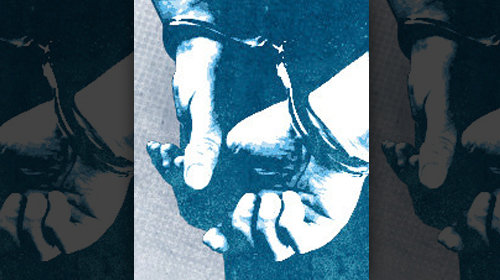
Today, the U.S. has the highest incarceration rate of any country in the world. With over 2.3 million men and women living behind bars, our imprisonment rate is the highest itÔÇÖs ever been in U.S. history. And yet, our criminal justice system has failed on every count: public safety, fairness and cost-effectiveness. Across the country, the criminal justice reform conversation is heating up. Each week, we feature some of the most exciting and relevant news in overincarceration discourse that weÔÇÖve spotted from the previous week. Check back weekly for our top picks.
Previous posts have surveyed the many reform bills in play across the country. This week, weÔÇÖll take a more detailed look at a recently enacted reform bill, IndianaÔÇÖs . The massive new law, which was , makes a long list of changes to the stateÔÇÖs criminal code. Some of those many changes will mean fewer prisoners; some will have the opposite effect. Altogether, though, the state thinks the bill will mean slightly fewer prisoners over the next 5-6 years.
The most significant aspect of the bill is the new set of felony classifications. The bill replaces IndianaÔÇÖs four felony tiers with six, which in practice should lower the sentence lengths for the majority of felony defendants. An applied the new felony tiers to felony convictions from 2008-2012; over 80% of defendants would have faced a lower minimum sentence, a lower maximum sentence, or both if the six-tier system had been in place. Hundreds would have been convicted of a misdemeanor instead of a felony.
A big win for common sense in the bill is the establishment of a felony threshold for theft. Currently, Indiana is the for which theft is a felony no matter how small the stolen itemÔÇÖs value. That will change on July 1 of next year, when the felony threshold gets set at $750. If this law had been in place in 2009, wouldnÔÇÖt have gone to prison for petty theft. In the meantime, however, it will still be possible to be charged with a felony or in Indiana. (Also, note that the $750 line is modest; in tough-on-crime Texas, theft of property valued at is a misdemeanor).
Also in the bill are a number of changes to drug-offense sentencing. Possession of most substances will be a misdemeanor, and sentences for most sale or manufacture offenses will be reduced. The area near schools within which drug offenses carry longer sentences is reduced from 1,000 feet to 500 feet, and such enhancements will only apply while a person under 18 years of age was reasonably expected to be present.
On the other hand, prisoners will be able to earn less time off their sentences through good behavior or participation in programs that tend to reduce recidivism. The bill also increases sentence lengths for more serious offenses. These provisions will mitigate the billÔÇÖs downward pressure on the stateÔÇÖs prison population.
IndianaÔÇÖs prison population has grown fairly aggressively over the last decade, up more than 20% over a period when some states have actually begun to shed prisoners and close prisons. HB 1006 should be a step in the right direction: backward.
Here are some other interesting items from the past week:
- ColoradoÔÇÖs legislature passed a ton of smart criminal justice bills as its session closed, including , which makes broad reforms to the stateÔÇÖs drug laws. Check out the Colorado Coalition for Criminal Justice ReformÔÇÖs to learn more.
- The House of Representatives announced of the Over-Criminalization Task Force of 2013. Mike Riggs at Reason that the bipartisan group will tackle drug law reform. More on the group .
- Last week, the California Senate that would allow prosecutors to charge the simple possession of any controlled substance as a misdemeanor.
- You can review recent activity in state legislatures to reduce prison populations, with contextual information about each state, on our new map.
Learn more about overincarceration and other civil liberty issues: Sign up for breaking news alerts, , and .
